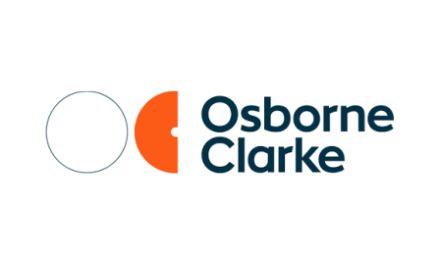

Accountants play an extremely important role in the entire organisation, not only in the financial area. Over the years, the profession has undergone many transformations, but the changes have never progressed as quickly as today. How will the new technologies and other challenges alter the profession’s character? What will this mean for companies and for the accountants?
The rapid development of AI is now revolutionising business. The changes are proceeding at an unprecedented pace, increasingly affecting the daily work of most of us. Accountancy is one of the areas that is experiencing an intense transformation. Which direction is it headed in?
Technological innovation, flexible working models, Generation Z and regulatory changes are all transforming the role of accountants and the character of their work. Over the next 2-3 years, the solutions such as AI, machine learning, robotic process automation (RPA) and blockchain will significantly reshape the profession.
Accountancy is starting to go beyond the traditional tasks of bookkeeping or preparing financial statements. Digitalisation, automation, the multiplicity of legislative changes and the new tools introduced by the legislator (JPK, KSeF) result in a completely different set of competences which are now becoming more important than just a few years ago. The ability to find one’s way in this increasingly digital world and to adapt to the new expectations of business will be among the key challenges to be faced by accountants in the coming months.
Will technology replace accountants?
The increasing number of tools automating financial processes is shifting the centre of gravity when it comes to the specific nature of accounting tasks. Repetitive and routine tasks such as posting invoices, verifying contractors or preparing reports are more often performed by robots. It is also becoming popular to implement virtual assistants (chatbots) for basic communication with existing or potential clients. On one hand, the robotisation and automation of tasks relieves accountants of simple and time-consuming tasks and increases efficiency, and on the other hand it eliminates potential human errors.
AI and machine learning are creating completely new opportunities. They allow data to be collected and analysed and for conclusions to be drawn from the data to help make strategic business decisions.
Does all this mean that accountants will no longer be needed? Quite the contrary! I believe their role will only become more and more important. The technology will relieve them from the simplest tasks, but it will not be able to carry out key activities requiring know-how, experience and the ability to find a way through complex legal regulations.
It should also not be forgotten that robots and AI are not infallible. They do sometimes make mistakes, including those resulting from the misinterpretation of regulations. This will definitely force a further need to verify the effects of their work. Moreover, the Polish tax system changes with such frequency that updating AI tools to new regulations will remain a major challenge, difficult to achieve without the support of highly skilled experts.
New competences – data analytics and business intelligence
Over the coming months, accountants will also face the challenge to use technological developments to build competencies in the area of data analytics and business intelligence (BI) tools. A key skill will be the use of automation and AI-based solutions to streamline processes, increase efficiency and improve data accuracy.
The accountants will use their experience in analysing financial data to help companies identify growth opportunities, optimise costs and mitigate risks. They will analyse financial data and perform financial modelling to assess the potential impact of different scenarios and strategies, supporting managers with investment projects, mergers and acquisitions, pricing strategies or cost optimisation.
Advanced analytics and the ability to draw conclusions from huge volumes of financial and non-financial data will enable accountants to act as business advisors, proactively supporting internal and external clients. They will be actively involved in identifying and managing risks in organisations. Their role will be to improve financial planning and the detection of deficiencies. They will also play a part in IT risk assessment and mitigation for cybersecurity threats and data breaches as the number of such threats continue to increase.
Adapting to frequent changes
Frequent legislative changes greatly affect the work of accountants. Sometimes the legislator provides little time to implement regulations and adapt accounting processes to the new legal environment. Updating the systems and software for legal changes may not only become a problem, but also an expensive process.
Compliance standards are constantly evolving due to emerging economic, environmental and social challenges. Accountants need to keep abreast of these developments to ensure proper reporting and compliance. And the development of ESG reporting will require a more extensive set of skills from accountants, including an understanding of sustainability practices and frameworks.
Remote working and virtual cooperation
Over the next two to three years, flexible working arrangements will continue to gain importance, also for the accounting profession. This will be linked to the opportunity to work remotely or in a hybrid way, while communicating with clients or colleagues via digital platforms. This change will require adaptability, effective communication skills and a focus on building virtual relationships to maintain client trust and satisfaction.
An opportunity or a threat?
The dynamic transformation of the accounting profession raises many concerns and uncertainties, but it is a direction from which there’s no turning back. The opportunities provided by the development of new technologies are almost unlimited and each day we are surprised by news from the tech market.
Accountants who are open to the new challenges and who are not afraid to change their current working model will gain the opportunity to develop and expand their role in the organisation. They will acquire new competences and act as trusted business advisors. Interpersonal skills will remain important. Developments in technology present new demands in cooperation and communication with clients.
Despite the growing role of AI in accountancy, there will still be a need for human verification and oversight of processes. Accountants play and will continue to play an important role in interpreting data, analysing the business context and making strategic decisions based on the data provided by AI. Demographics also need to be taken into account. Some clients will be more open to use new technologies, while others will remain distrustful of innovation and still appreciate the traditional contact with an accountant more. This best illustrates that in accounting processes, the role of people will still be crucial, while technology will streamline their work and open up new opportunities.



























